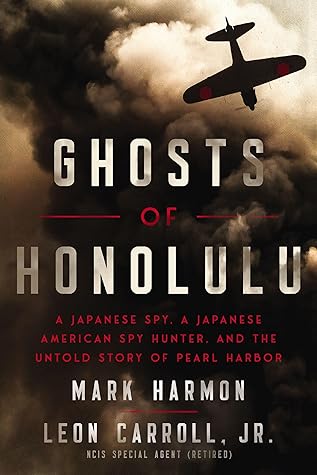More on this book
Community
Kindle Notes & Highlights
by
Mark Harmon
Read between
January 26 - February 9, 2024
Yoshikawa’s job will begin on the intelligence staff of the Imperial Navy’s Third Division, and his areas of study include the US Pacific Fleet and its bases in Guam, Manila, and Hawaii.
Yet the most important targets had been missed, the naval base was not crippled and the sleeping American giant had been hurt just enough to fully awaken.
The Japanese spy at Pearl Harbor has at long last come in from the cold.
On February 4, 1966, the secretary of the Navy created the US Naval Investigative Service as a separate entity. For the first time, NIS was divorced from the disjointed, parochial control of local District Intelligence Offices and ad-hoc security groups.
Mainly because of miscarriages of justice in disciplinary matters occurring during World War II, the US Congress enacted the mandates contained in the Uniform Code of Military Justice. This document placed a greater need for competent investigation of major crimes occurring among military commands on ships and ashore. Since ONI already had an investigative force for intelligence matters, it appeared logical for the task of investigating serious crimes be assigned to Naval Intelligence. Furthermore, there was frequently a relationship between security considerations and the culprits of serious
...more
“We cannot forget those hundreds of patriotic and dedicated persons, now deceased, who labored during the earlier years before NIS came into existence,”
In 1992, an underfunded NIS reorganized and took on a new name, the Naval Criminal Investigative Service (NCIS). Two years later, NCIS was remade into a civilian-led federal law enforcement agency with fourteen field offices and operations in 140 locations worldwide. In 1995, NCIS introduced its Cold Case Homicide Unit, the first such dedicated unit in the federal government. By 2000 Congress vested NCIS civilian special agents the authority to execute warrants and make arrests. The trail blazed by Wada and his generation of agents is still being followed by multitudes.
NCISA History Project website, ncisahistory.org.


